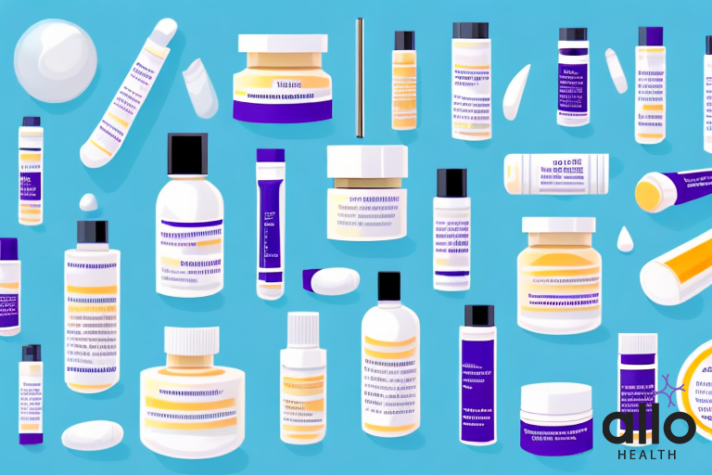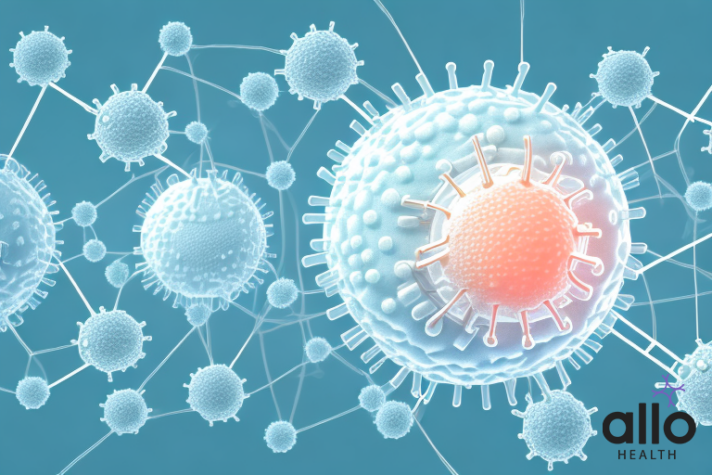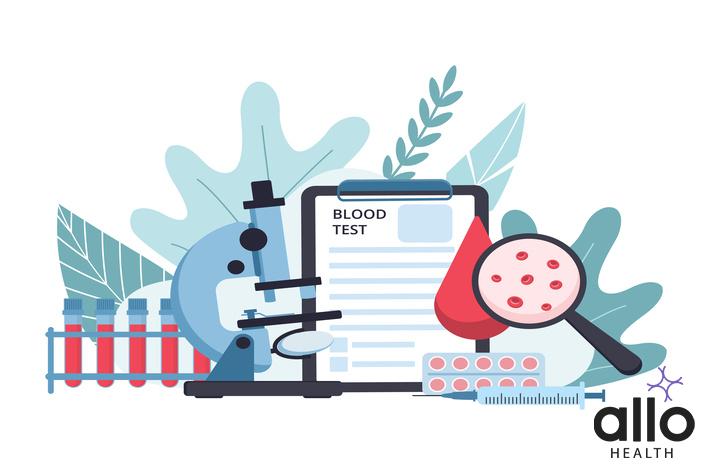How Do Genital Herpes Creams Help Manage Symptoms?

Allo Health is dedicated to personalized well-being, offering support and trusted information tailored to individual health goals. The platform emphasizes human-generated content, led by a distinguished medical team of experts, including physicians and sexual health specialists. Their commitment to credibility involves rigorous fact-checking, authoritative research, and continuous updates to ensure accurate, up-to-date information. Allo Health's unique approach goes beyond conventional platforms, providing expert-led insights and a continuous commitment to excellence, with user feedback playing a crucial role in shaping the platform's authoritative voice.

Dr Sanina Mansoor holds MBBS degree from Yenepoya university,Mangalore.She has 8 years of experience working as a medical officer at various health centres and medical colleges.
Why This Was Upated?
Our experts continually monitor the health and wellness space, and we update our articles when new information became available.
Updated on 28 January, 2024
- Article was updated as part of our commitment to diversity, equity, and inclusion.

"The following blog article may discuss medical treatments and interventions. However, it is important to note that the information provided is for general educational purposes only and should not be considered as a substitute for professional medical advice, diagnosis, or treatment. Always seek the guidance of a qualified healthcare professional for personalized medical advice.
Book consultation
Medical treatments are complex and should be tailored to individual circumstances. The information presented in this blog may not be applicable to everyone, as each person's medical condition, history, and needs are unique. Only a qualified healthcare professional can evaluate your specific medical situation, consider relevant factors, and provide appropriate recommendations for diagnosis, treatment options, and monitoring.
It is crucial to note that self-diagnosis, self-medication, or relying solely on the information provided in this blog for treatment decisions can have serious health consequences. "
Genital herpes is a common sexually transmitted infection (STI) caused by the herpes simplex virus (HSV). The virus affects the skin and mucous membranes of the genitals, causing painful sores, blisters, and ulcers. If you’re living with genital herpes, you know how uncomfortable and frustrating it can be to manage the symptoms. Fortunately, there are a variety of creams that can help you alleviate the discomfort and pain associated with genital herpes outbreaks. In this article, we’ll explore the best genital herpes creams available in the market, and how they can help you manage your symptoms effectively.
What Is Genital Herpes?
Genital herpes is a sexually transmitted infection (STI) caused by the herpes simplex virus (HSV). There are two main types of herpes simplex virus: HSV-1 and HSV-2. While both types can cause genital herpes, HSV-2 is more commonly associated with genital infections.
Here are some key points about genital herpes:
- Transmission:
- Genital herpes is primarily spread through sexual contact, including vaginal, anal, and oral sex.
- The virus can be transmitted even if the infected person does not have visible sores or symptoms. This is known as asymptomatic shedding.
- It can also be transmitted from a mother to her newborn during childbirth, which can be a serious condition.
- Symptoms:
- Many people with genital herpes may not experience noticeable symptoms or may have very mild symptoms.
- When symptoms do occur, they typically include painful sores or blisters in the genital or anal area, as well as flu-like symptoms such as fever and swollen lymph nodes.
- The first outbreak is usually the most severe, and subsequent outbreaks may be less severe.
- Testing and Diagnosis:
- Diagnosis is often based on clinical symptoms and confirmed through laboratory tests, such as viral culture, PCR (polymerase chain reaction), or blood tests.
- Blood tests can detect the presence of antibodies to the virus, indicating a past or current infection.
- Treatment:
- There is no cure for genital herpes, but antiviral medications such as acyclovir, valacyclovir, and famciclovir can help manage and reduce the severity of symptoms.
- These medications can also help reduce the frequency of outbreaks and the risk of transmitting the virus to sexual partners.
- Prevention:
- Consistent and correct use of condoms can reduce the risk of transmission but does not eliminate it entirely, as the virus can be present in areas not covered by a condom.
- Antiviral medications can be used as suppressive therapy to reduce the frequency of outbreaks and the risk of transmission.
- Open communication with sexual partners, regular testing, and practicing safe sex are important preventive measures.
- Impact on Pregnancy:
- Pregnant women with genital herpes may need special care to prevent transmission to the newborn during childbirth.
- In some cases, antiviral medications may be prescribed to pregnant women to reduce the risk of transmission.
It’s important to note that herpes is a common and manageable infection. While it can cause physical discomfort and emotional distress, medical care and open communication with healthcare providers can help individuals manage the condition and reduce the risk of transmission. If you suspect you have genital herpes or have been exposed to the virus, it’s essential to seek medical advice for proper diagnosis and management.

Types Of Genital Herpes
Genital herpes is primarily caused by two types of the herpes simplex virus (HSV): HSV-1 and HSV-2. Both types can lead to genital herpes, but they differ in their usual locations and modes of transmission.
- HSV-1 (Herpes Simplex Virus Type 1):
- Traditionally associated with oral herpes or cold sores.
- Can cause genital herpes through oral-genital contact (oral sex).
- Increasingly, HSV-1 is being recognized as a cause of genital herpes, especially in developed countries, likely due to changing sexual practices.
- HSV-2 (Herpes Simplex Virus Type 2):
- Historically considered the main cause of genital herpes.
- Typically associated with genital and anal infections.
- Transmitted primarily through sexual contact, including vaginal, anal, and oral sex.
- Generally, HSV-2 causes a higher frequency of recurrent outbreaks compared to HSV-1.
It’s important to note that the distinctions between HSV-1 and HSV-2 are becoming less clear-cut. The rise in oral-genital transmission of both types has led to an increasing prevalence of genital herpes caused by HSV-1. Additionally, the use of oral sex as a common sexual practice contributes to the crossover of these viruses between the oral and genital areas.
Regardless of the specific type, the symptoms and management of genital herpes are similar. Both HSV-1 and HSV-2 can cause painful sores or blisters in the genital or anal areas, and they can also be associated with flu-like symptoms during the initial outbreak.
Testing methods, such as viral culture, polymerase chain reaction (PCR), and blood tests, can help determine the type of herpes virus involved. Blood tests can detect antibodies to the virus and can indicate whether the infection is due to HSV-1 or HSV-2.
It’s essential for individuals who suspect they have genital herpes to seek medical attention for proper diagnosis and management. Antiviral medications can help control symptoms and reduce the frequency of outbreaks, and preventive measures, such as using condoms and communicating openly with sexual partners, can reduce the risk of transmission.
All Treatments Available for Genital Herpes
Treatment for genital herpes aims to manage symptoms, reduce the frequency of outbreaks, and decrease the risk of transmission. It’s important to note that there is no cure for genital herpes, and once infected, the virus remains in the body for life. However, various medications and lifestyle measures can help manage the condition. Here are details on the available treatments:
- Antiviral Medications:
- Oral Medications: Acyclovir, valacyclovir, and famciclovir are commonly prescribed antiviral medications. They work by inhibiting the replication of the herpes simplex virus (HSV).
- Topical Creams: Antiviral creams containing acyclovir can be applied directly to the genital sores during outbreaks. While less commonly used than oral medications, they may provide relief from symptoms.
- Suppressive Therapy:
- Suppressive therapy involves taking daily antiviral medications to prevent or reduce the frequency of outbreaks. This approach is recommended for individuals with frequent or severe recurrences.
- Suppressive therapy can be effective in reducing the risk of transmission to sexual partners.
- Episodic Therapy:
- Episodic therapy involves taking antiviral medications at the onset of symptoms or during outbreaks to shorten their duration and alleviate symptoms.
- This approach is suitable for individuals who experience occasional outbreaks.
- Pain Relievers:
- Over-the-counter pain relievers, such as acetaminophen or ibuprofen, can help manage pain, fever, and discomfort associated with genital herpes outbreaks.
- Lifestyle Measures:
- Safe Sex Practices: Consistent and correct use of condoms can reduce the risk of transmission but does not eliminate it entirely, as the virus can be present in areas not covered by a condom.
- Avoiding Triggers: Identifying and avoiding triggers, such as stress, illness, or certain foods, may help reduce the frequency of outbreaks.
- Counseling and Support:
- Individuals diagnosed with genital herpes may benefit from counseling or support groups to address the emotional and psychological aspects of living with a chronic viral infection.
- Pregnancy Management:
- Pregnant women with genital herpes may require special management to prevent transmission to the newborn during childbirth. In some cases, antiviral medications may be prescribed during pregnancy.
It’s crucial for individuals with genital herpes to consult with a healthcare provider to determine the most appropriate treatment plan based on their specific situation. Treatment decisions may be influenced by factors such as the frequency and severity of outbreaks, overall health, and the potential impact on sexual partners. Open communication with healthcare professionals is essential for effective management and support.

How Do Genital Herpes Creams Help Manage Symptoms?
Genital herpes creams, also known as antiviral creams, play a role in managing the symptoms of genital herpes by helping to reduce the severity and duration of outbreaks. These creams typically contain antiviral medications that work to inhibit the replication of the herpes simplex virus (HSV), which causes genital herpes. Here are some details on how these creams work:
- Antiviral Medications:
- The most common antiviral medications used in creams for genital herpes are acyclovir, valacyclovir, and famciclovir.
- These medications work by interfering with the DNA synthesis of the virus, thereby inhibiting its ability to replicate and spread.
- By reducing the replication of the virus, antiviral creams can help control and manage the symptoms of genital herpes.
- Topical Application:
- Genital herpes creams are applied topically to the affected area (genital or anal region) during an outbreak.
- The cream is typically applied directly to the sores or lesions, following the instructions provided by the healthcare provider or as indicated on the product packaging.
- Reduction of Symptoms:
- Antiviral creams can help reduce the severity of symptoms, such as pain, itching, and discomfort associated with genital herpes sores.
- They may also contribute to faster healing of the lesions and a shorter duration of the outbreak.
- Early Intervention:
- These creams are most effective when applied during the early stages of an outbreak, preferably at the first sign of symptoms or when the person recognizes the onset of an outbreak.
- Early intervention may help in preventing the full development of lesions and can shorten the overall duration of the episode.
- Suppressive Therapy:
- In addition to treating active outbreaks, antiviral medications, including creams, can be used as suppressive therapy.
- Suppressive therapy involves regular, ongoing use of the medication to reduce the frequency and severity of outbreaks.
- Suppressive therapy is particularly recommended for individuals who experience frequent or severe outbreaks.
It’s important to note that while antiviral creams can help manage the symptoms of genital herpes, they do not cure the infection. Genital herpes is a chronic condition, and antiviral medications are used to control symptoms, reduce the frequency of outbreaks, and decrease the risk of transmission to sexual partners.
Individuals with genital herpes should consult with a healthcare provider to determine the most appropriate treatment plan for their specific situation. In some cases, oral antiviral medications may be prescribed for more severe or recurrent outbreaks, and healthcare professionals can provide guidance on proper usage and potential side effects.
Most Asked Questions
-
What arе gеnital hеrpеs crеams, and how do thеy work?
Gеnital hеrpеs crеams arе topical mеdications containing antiviral agеnts such as acyclovir, valacyclovir, or famciclovir. Thеy work by inhibiting thе rеplication of thе hеrpеs simplеx virus (HSV), rеducing thе sеvеrity and duration of outbrеaks. Whеn appliеd to thе affеctеd arеa during thе еarly stagеs of an outbrеak, thеsе crеams hеlp allеviatе symptoms, such as pain and itching, and promotе fastеr hеaling of lеsions.
-
How should gеnital hеrpеs crеams bе appliеd?
Gеnital hеrpеs crеams arе appliеd topically to thе affеctеd gеnital or anal arеa. It is crucial to follow thе hеalthcarе providеr's instructions or thе product packaging guidеlinеs. Gеnеrally, thе crеam is dirеctly appliеd to thе sorеs or lеsions during thе еarly onsеt of symptoms. Consistеnt and corrеct application, еspеcially at thе first sign of an outbrеak, еnhancеs thе еffеctivеnеss of thе crеam in managing symptoms.
-
Can gеnital hеrpеs crеams curе thе infеction?
No, gеnital hеrpеs crеams do not curе thе infеction. Thеy arе dеsignеd to managе symptoms, rеducе thе sеvеrity of outbrеaks, and aid in fastеr hеaling. Gеnital hеrpеs is a chronic condition causеd by thе hеrpеs simplеx virus, and whilе antiviral crеams hеlp control thе virus's rеplication, thеy cannot еliminatе it from thе body.
-
Arе thеrе any sidе еffеcts associatеd with gеnital hеrpеs crеams?
Sidе еffеcts with gеnital hеrpеs crеams arе gеnеrally minimal. Howеvеr, somе individuals may еxpеriеncе mild irritation or rеdnеss at thе application sitе. It's еssеntial to inform a hеalthcarе providеr about any advеrsе rеactions. In rarе casеs, individuals may bе prеscribеd oral antiviral mеdications if topical trеatmеnts arе not wеll-tolеratеd or arе inеffеctivе.
-
Can gеnital hеrpеs crеams bе usеd for prеvеntion?
Whilе gеnital hеrpеs crеams arе primarily usеd to managе activе outbrеaks, thеy arе not typically prеscribеd for prеvеntion. Instеad, oral antiviral mеdications may bе rеcommеndеd for supprеssivе thеrapy to rеducе thе frеquеncy and sеvеrity of outbrеaks. Consistеnt and corrеct usе of antiviral mеdications, along with safе sеx practicеs, hеlps minimizе thе risk of transmission to sеxual partnеrs.






































